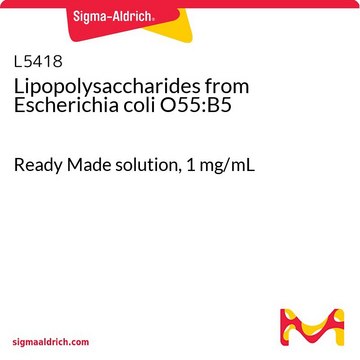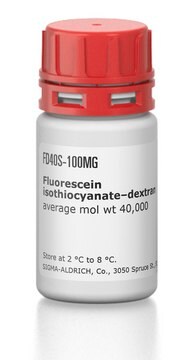MAK339
Lipopolysaccharide (LPS) Isolation Kit
sufficient for 10 isolation(s)
Sign Into View Organizational & Contract Pricing
All Photos(3)
About This Item
UNSPSC Code:
12161503
Recommended Products
usage
sufficient for 10 isolation(s)
application(s)
sample preservation
storage temp.
−20°C
General description
The outer membrane of gram-negative bacteria contains lipopolysaccharide (LPS), a low molecular weight carbohydrate with a molecular mass of 10-20 kDa. It is heterogeneous and composed of O antigen (a repeating glycan polymer), core oligosaccharide (which links the O antigen to Lipid A - the third component, and non-carbohydrate components such as phosphate and amino acids groups. Lipid A, has multiple fatty acids which serve to anchor LPS into the bacterial membrane allowing the O antigen and core oligosaccharide to protrude and contributes to a major part of the toxicity of gram-negative bacteria. Also known as endotoxin, when consumed by animals, LPS induces a strong inflammatory response and/or sepsis.
Suitability
Suitable for the isolation of Lipopolysaccharides from outer membrane of gram negative bacteria.
Principle
The Lipopolysaccharide (LPS) Isolation Kit uses bacterial membrane lysis buffer and protein digestion to yield micrograms of LPS from bacterial culture (approximately 1-4% of dry weight). This kit does not use chloroform or phenol like traditional methods, and it will yield pure LPS in less than 2 hours that can be easily characterized and quantified.
Signal Word
Danger
Hazard Statements
Precautionary Statements
Hazard Classifications
Met. Corr. 1 - Resp. Sens. 1
Storage Class Code
8A - Combustible, corrosive hazardous materials
WGK
WGK 1
Flash Point(F)
Not applicable
Flash Point(C)
Not applicable
Certificates of Analysis (COA)
Search for Certificates of Analysis (COA) by entering the products Lot/Batch Number. Lot and Batch Numbers can be found on a product’s label following the words ‘Lot’ or ‘Batch’.
Already Own This Product?
Find documentation for the products that you have recently purchased in the Document Library.
Zhiyuan He et al.
Frontiers in nutrition, 9, 864080-864080 (2022-04-12)
Calf diarrhea induced by enteroaggregative E. coli (EAEC) spreads fast among young ruminants, causing continuous hazard to dairy industry. Antimicrobial drug abuse aggravates the incidence rate of multi-drug resistant (MDR) extended-spectrum β-lactamase-producing E. coli (ESBL-EC). However, knowledge of detection and
Our team of scientists has experience in all areas of research including Life Science, Material Science, Chemical Synthesis, Chromatography, Analytical and many others.
Contact Technical Service





